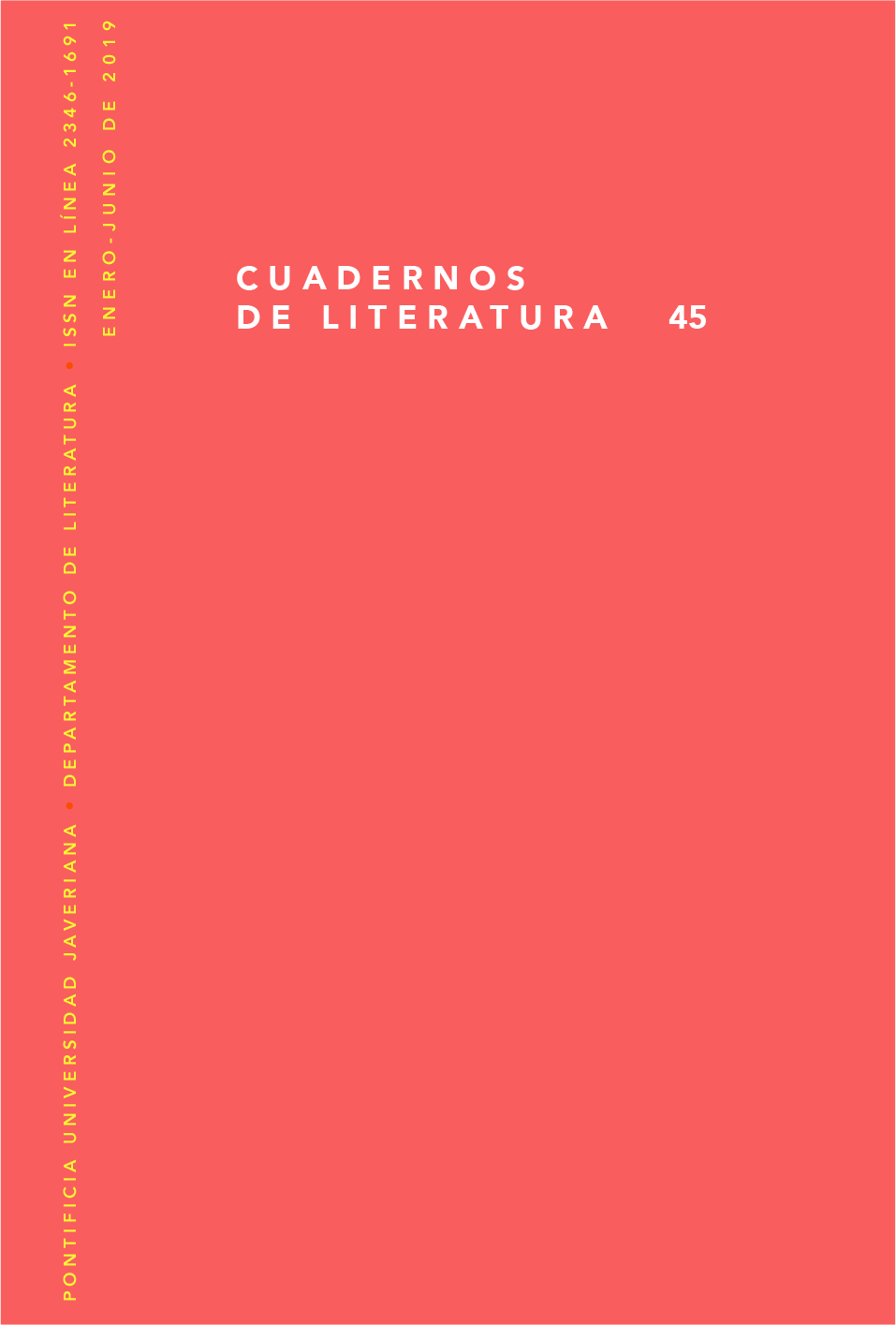Abstract
Este texto fue publicado “A modo de introducción” en el libro colectivo, Ciudadanías del miedo (7-22), editado por Rotker poco antes de su fallecimiento en el año 2000. En ese entonces: “Se decidió a conciencia que el prólogo fuera un estudio introductorio al tema de la violencia urbana y no un resumen de los artículos del libro, por respeto al valor integral de cada uno de los trabajos y a la inteligencia del lector” (23). Esa decisión explica en alto grado la libertad, la autonomía, la amplitud del texto resultante y también los pocos cambios que se le hicieron al publicarse, posteriormente, como parte del libro Bravo pueblo, una recopilación póstuma de varios de los escritos de la autora.
Arendt, Hannah. The Origins of Totalitarism. Nueva York: Harcourt, Brace and World, 1973. Impreso.
Azaola Garrido, Elena. “Notes on Juvenile Delinquency in Mexico”. Rising Violence and the Criminal Justice Response in Latin America: Towards an Agenda for Collaborative Research in the 21st Century. Eds. Peter Ward y Corinne Davis. Austin: University of Texas, 1999. http://lanic.utexas.edu/project/etext/violence/memoria/session_3.html. Web.
Bauman, Zygmunt. Postmodernity and its Discontents. Nueva York: New York University Press, 1997. Impreso.
Benjamin, Walter. París, capital del siglo XIX. México: Imprenta Madero (edición limitada fuera de comercio), 1971. Impreso.
Birnbaum, Pierre, Jack Lively y Geraint Parry, eds. Democracy, Consensus, and Social Contract. Londres: Sage, 1978. Impreso.
Blanco, José Joaquín. Función de medianoche. Ensayos de literatura cotidiana. México: Era, 1981. Impreso.
Brunner, José Joaquín. Globalización cultural y posmodernidad. México: Fondo de Cultura Económica, 1998. Impreso.
Castoriadis, Cornelius. The Imaginary Institution of Society. Trad. Kathleen Blamey. Cambridge: Massachusetts Institute of Technology Press, 1987. Impreso.
Certeau, Michel de. The Practice of Everyday Life. Trad. Steven Rendall. Berkeley -Los Angeles - Londres: University of California Press, 1984. Impreso.
Chiappe, Domenico y David González. “Los delitos aumentan y la denuncia disminuye”. El Nacional, 14 de noviembre de 1999. Impreso.
Duque, José Roberto y Boris Muñoz. La ley de la calle. Testimonios de jóvenes protagonistas de la violencia en Caracas. Caracas: Fundare, 1995. Impreso.
Feldman, Allen. Formations of Violence. The Narrative of the Body and Political Terror in Northen Ireland. Chicago - Londres: University of Chicago Press, 1991. Impreso.
Franco, Jean. “La globalización y la crisis de lo popular”. Trad. Nora López. Nueva Sociedad 149 (1997). http://nuso. org/media/articles/downloads/2592_1.pdf. Web.
García Canclini, Néstor. Consumidores y ciudadanos. México: Grijalbo, 1995. Impreso.
Hardt, Michael y Antonio Negri. Empire. Cambridge - Londres: Harvard University Press, 2000. Impreso.
Jelin, Elizabeth y Eric Hershberg, coords. Construir la democracia: derechos humanos, ciudadanía y sociedad en América Latina. Caracas: Nueva Sociedad, 1996. Impreso.
Laclau, Ernesto y Chantal Mouffe. Hegemony and Socialist Strategy: Towards a Radical Democratic Politics. Trads. Winston Moore y Paul Cammack. Londres: Verso, 1985. Impreso.
Lefebvre, Henri. The Production of Space. Trad. Donald Nicholson-Smith. Oxford: Blackwell, 1991. Impreso.
Monsiváis, Carlos. “De no ser por el pavor que tengo, jamás tomaría precauciones. Notas sobre la violencia urbana”. Letras Libres I (1999): 34-39. Impreso.
Pile, Steve y Michael Keith, eds. Geographies of Resistance. Londres - Nueva York: Routledge, 1997. Impreso.
Pocock, J.G.A. “The Ideal of Citizenship Since Classical Times”. Ed. Ronald Beiner. Theorizing Citizenship. Nueva York: State University of New York Press, 1995. Impreso.
Rorty, Richard. Contingencia, ironía y solidaridad. Barcelona: Paidós, 1991. Impreso.
Rotker, Susana, ed. Ciudadanía del miedo. Caracas: Nueva Sociedad, 2000. Impreso.
Salazar, Alonso. No nacimos pa’semilla. Bogotá: Cinep, 1994. Impreso.
Scarry, Elaine. The Body in Pain. The Making and Unmaking of the World. Nueva York - Oxford: Oxford University Press, 1985. Impreso.
Starobinski, Jean. “1789 et le langage des principes”. Preuves 203 (1968): 22-33. Impreso.
Taussig, Michael. Shamanism, Colonialism, and the Wild Man. A Study in Terror and Healing. Chicago - Londres: Chicago University Press, 1987. Impreso.
Vallejo, Fernando. La virgen de los sicarios. Bogotá: Alfaguara, 1994. Impreso.
Zizek, Slavoj. The Sublime Object of Ideology. Londres - Nueva York: Verso, 1989. Impreso.
Cuadernos de Literatura is registered under a Creative Commons Attribution 4.0 International Public License. Thus, this work may be reproduced, distributed, and publicly shared in digital format, as long as the names of the authors and Pontificia Universidad Javeriana are acknowledged. Others are allowed to quote, adapt, transform, auto-archive, republish, and create based on this material, for any purpose (even commercial ones), provided the authorship is duly acknowledged, a link to the original work is provided, and it is specified if changes have been made. Pontificia Universidad Javeriana does not hold the rights of published works and the authors are solely responsible for the contents of their works; they keep the moral, intellectual, privacy, and publicity rights.
Approving the intervention of the work (review, copy-editing, translation, layout) and the following outreach, are granted through an use license and not through an assignment of rights. This means the journal and Pontificia Universidad Javeriana cannot be held responsible for any ethical malpractice by the authors. As a consequence of the protection granted by the use license, the journal is not required to publish recantations or modify information already published, unless the errata stems from the editorial management process. Publishing contents in this journal does not generate royalties for contributors.


